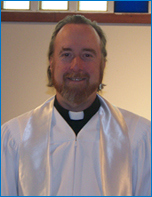
Language Games and Multiculturalism
Rev. David Fekete, February 2017
I am deeply committed to interfaith ideals and multicultural societies. But I just had a striking experience with the tranquil quiet of an acupuncture treatment that raised some vexing questions. But what if being deeply immersed in a culture that values stillness and quiet is incompatible with other cultures that are more boisterous, aggressive, and stressful? I ask, can one be open to intercultural ideals while being committed, oneself, to a deep tradition and culture? Jean-Francois Lyotard asserts that there are modes of communication that don’t translate into other systems of meaning. He talks about “the heterogeneity of language games”.
We cannot assume we understand another’s system of symbols; in fact, we do violence to the other’s system of meaning when we try to impose our understanding—still worse, our own meaning—onto the other’s world. I wondered if the meditative music they played for me during my acupuncture treatment is more than aesthetics? What if the music embodies a culture, a philosophy, and an ethics? I like classical music, jazz, blues, and rock. But these are aesthetic judgments. I suspect that the Chinese music I heard during my acupuncture treatment may well reflect the ethics of stillness, meditative quiet, and tranquility of Chinese culture. It is akin to Palestrina’s choral music, which one could say does embody a Christian ethics. So, in short, I wondered if the world of the Chinese music I heard was compatible with Z. Z. Top?
I went to the acupuncture center because I had stiffness in the neck and shoulders due to all the typing I do and piano I play. The treatment was deceptively simple. I was instructed to lie down on a table, and a few needles were inserted in my feet, legs, arms, abdomen, and one in my third eye (forehead) and a final one in the top of my head. Then I was left on the table with dimmed lights and soothing music featuring the sound of waves. The stillness, lack of stimulation, and the needles completely stilled my restless mind and stiff body. Not only did the tranquility of the treatment relax my stiff muscles, it helped me with concentration, alertness, my sinus condition, and mood– it put a spring in my step. It accomplished all this as I lay on a table with a few needles in me, listening to meditative music with ocean waves. My body healed itself. Or, as my doctor said, it restored the flow of ch’i. The philosophy behind the acupuncture treatment was to still my mind first, then my muscles would relax.
This got me to thinking. Lying on the cot, stilling my mind and muscles, listening to quiet music made me think about life outside the doctor’s office. I thought about the stillness, the absence of stimulation, all quieting my mind, relaxing my muscles in the acupuncture clinic.
Then there is the hectic pace, the over-stimulation of our society, the noise. If it is therapeutic to be in a still, quiet environment, what about the frenetic pace and stresses of my life in the Western world? I saw that I would need to adjust my lifestyle, of course, and not let stress and stressors into my mind. But the contrast of cultures, and their potential incompatibility, was what I especially wondered about. I thought also about the Chinese music they played when I practiced Tai Chi at a different Chinese studio. It would be hard for me to listen to Chinese music alone, if I weren’t doing Tai Chi, due to the music’s simplicity and meditative quality. Tai Chi, the acupuncture office, Chinese music are all products of a culture that values quietness, I think. Is it possible to live within the norms of a deeply held culture, and also hold multicultural ideals? That would be quite a feat.
I once heard a Christian minister speak at an interfaith gathering. She was so sensitive to interfaith values, and so anxious not to offend anyone, that she didn’t even pronounce the name, "Jesus." And yet she was representing the Christian religion at an interfaith event. That is interfaith at its worst. That is multiculturalism eroding one’s own norms and values. Interfaith means different faiths living in mutual respect, not watering down one’s own faith to include everyone else’s.
Swedenborg’s idea of heaven is radically multicultural. Heaven is in the form of a human body, complete with all the organs. And all the humans there—humans who have become angels—live in a given region of heaven. There are angels of the heart, the lungs, the eye, the ear, the feet, the arms, the generative organs. The various regions represent corresponding aspect of the human soul: angels of the heart are loving; angels of the lungs are wise; angels of the arms are strong in their faith, etc. Each region is comprised of communities of like-feeling and thinking individuals. Of course, Paul suggested something like this in 1 Corinthians 12:12-21:
“Indeed, the body does not consist of one member but of many. If the foot were to say, ‘Because I am not a hand, I do not belong to the body’, that would not make it any less a part of the body. And if the ear were to say, ‘Because I am not an eye, I do not belong to the body’, that would not make it any less a part of the body. If the whole body were an eye, where would the hearing be? If the whole body were hearing, where would the sense of smell be? But as it is, God arranged the members in the body, each one of them, as he chose. If all were a single member, where would the body be? As it is, there are many members, yet one body. The eye cannot say to the hand, ‘I have no need of you’, nor again the head to the feet, ‘I have no need of you.’“*
As Paul suggests, things are better when there are differences between us. The fact is, not one of us is the same as another. Nor should we be. God is infinite and each human reflects a unique sparkle of divinity.
When the whole is made out of a variety of parts, it is more perfect, In the same way, no one of us, no spirit, and no angel is ever exactly like any other, even facially. When I even thought about two identical or equal beings, the angels were aghast. They said that every unity is formed by a harmonious agreement of many constituents and that the nature of the unity depends on the nature of the agreement.” -Swedenborg, Heaven and Hell n. 405
In the Lord’s prayer, we say, “On earth as it is in heaven.” This is eminently the case with multiculturalism. We live in a multicultural world. And the world is better for it. We are left, though, with the question of how to operate in a multicultural world. Let’s return to my opening picture of the acupuncture treatment. Can I live with tranquil Chinese music and all that it represents, and also enjoy Z.Z. Top? Or does one preclude the other?
I affirm and celebrate cultural pluralism. I don’t necessarily think that ethnic communities have to be a bad thing. They preserve cultural traditions, art, and norms. What I do believe that matters, and matters emphatically, is that all cultures have access to public spaces. Equal access to workplaces, education, civic and political participation, and to the streets, parks, countryside, and any and all public spaces. One thing I do know for sure, life is richer for me dwelling in the multicultural city in which I live. Without multiculturalism, a white man like myself wouldn’t have been able to experience Chinese healing…
*New Revised Standard Version Bible, Anglicized. copyright 1989, Division of Christian Education of the National Council of the Churches of Christ in the United States of America. Used by permission. All rights reserved.
**Swedenborg, Emanuel. Heaven and Hell. Trans. George F. Dole. New Century Edition. West Chester, PA: Swedenborg Foundation, 2010. 316. Print.
 Rev. David Fekete is senior editor of “Our Daily Bread”, as well as pastor at the Church of the Holy City, a Swedenborgian community in Edmonton, Alberta.
Rev. David Fekete is senior editor of “Our Daily Bread”, as well as pastor at the Church of the Holy City, a Swedenborgian community in Edmonton, Alberta.
His particular interests and areas of passion include comparative religion, literature, the arts, as well as interfaith work and ecumenism.
Hallo I’m pretty pleased to discover this site. I want to thank you for ones time due to this wonderful read!! I definitely liked every part of it and I have you bookmarked to see new stuff in your web site.vielen dank
https://parzian.com/product-category/file/business-card/individual-speciality/